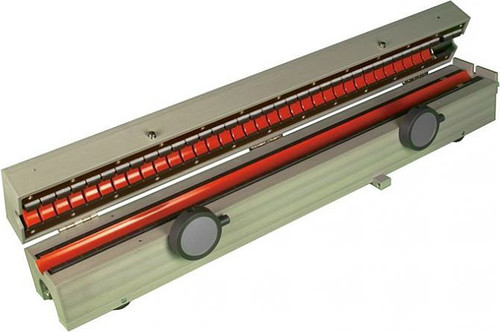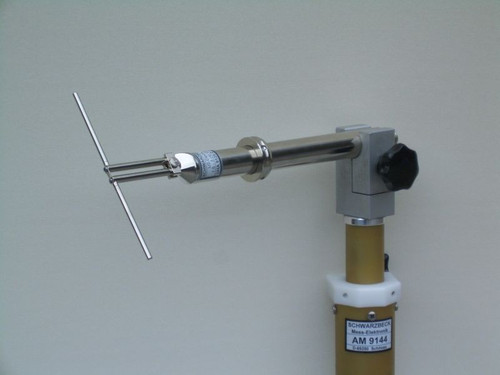Overview
Before this EMI Absorbing Clamp has been introduced, most EMI (Radio Interference) Measurement had to be performed as a FieldStrength Measurement on an open field antenna range (e.g. in 10 m distance on a clear place without any reflecting obstacles). This meant quite some effort and depended on weather conditions. With this clamp the EMI work became simple at first for domestic (houshold) equipment and Electric Tools (VDE 0875, 0877 part 3).
The Equipment under Test (EuT) or interference source was placed on the end of a 6m (18 ft) wooden table. The power line cord (plus extender line to 6m) is routed through the hole of the MDS Clamp which in turn is connected to a Quasipeak EMI Receiver according CISPR 16. The clamp is moved along the power cord on the wooden table until a maximum deflection indicates a perfect match and highest vhf power. As the clamp has 17dB coupling attenuation, the receiver voltage reading in dB(V at 50 ohm input is the EMI power expressed in dB over 1 Picowatt. CISPR 16-1-3 recommends the use of a 6 dB fixed pad directly connected to the clamp output in order to improve the measurement accuracy. The resulting Transducer Factor versa Frequency (Clamp Factor) is around 6 dB +/- 3 dB typically (see Diagram CForig)
| MDS 21 + 6 dB Attenuator | Jig Transfer Factor |
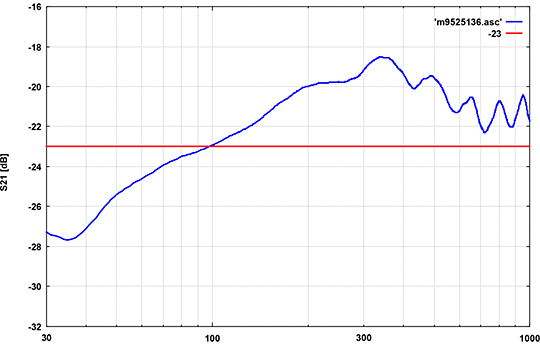 Frequency [MHz] |
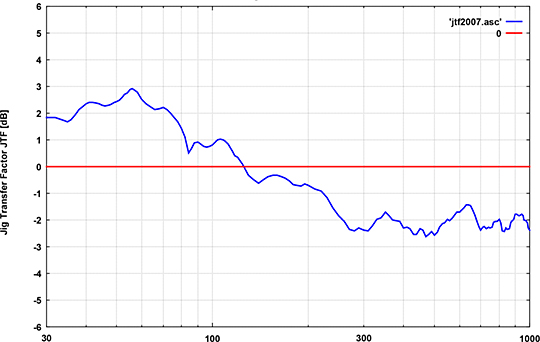 Frequency [MHz] |
Clamp Factor MDS 21 with 6 dB Attenuator |
Decoupling Factor MDS 21 |
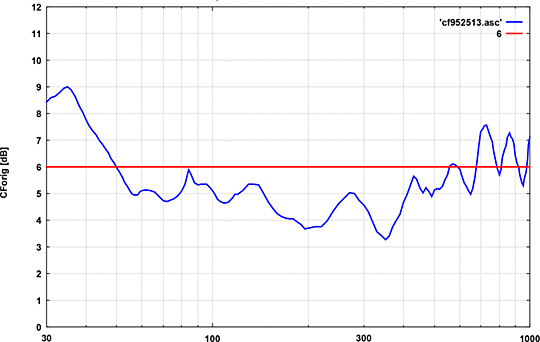 Frequency [MHz] |
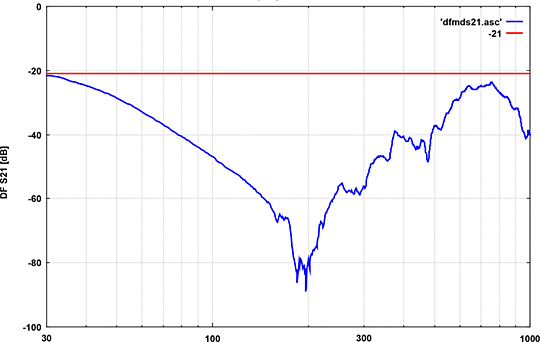 Frequency [MHz] |
| Schwarzbeck MDS 21 B Specifications | |
| Calibrated for receiver impedance | 50 Ω |
| Max. Current (f<500 Hz) | 30 A |
| Max. input power when used as coupling unit for immunity tests | 5 W |
| Diameter of appliance power cable | Up to 22 mm |
| Overall dimensions (WxHxD) | 610x115x80 mm |
| Weight | 6.3 kg |





